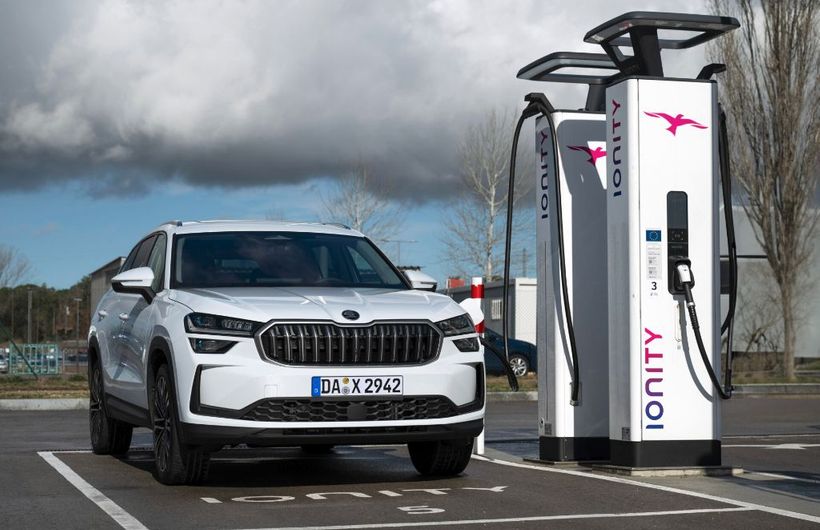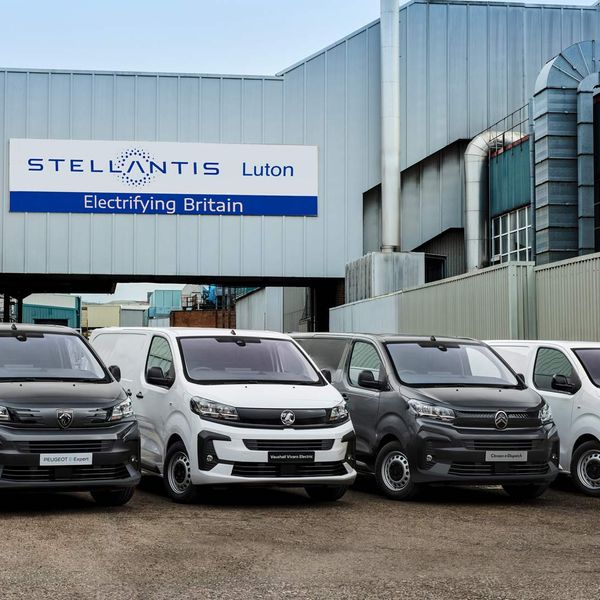After months of speculation, the UK government has officially confirmed that new hybrid cars can continue to be sold until 2035, while smaller manufacturers and commercial vehicles will be granted exemptions from the upcoming restrictions.
The Department for Transport’s long-awaited review of the UK’s EV transition – and the controversial Zero-Emission Vehicle (ZEV) mandate – has now concluded. While the sale of new petrol and diesel-only cars will be banned from 2030, hybrids with “significant electric range” will be permitted until 2035. From that point onwards, only fully zero-emission vehicles will be allowed.
Labour had previously hinted at reinstating the original 2030 phase-out date for petrol and diesel cars after the previous Conservative government pushed it back to 2035. However, details on what constitutes a “significant electric range” have remained unclear – until now.
It has been confirmed that full-hybrid models, such as the Toyota Corolla and Honda Jazz, will remain on sale alongside plug-in hybrids (PHEVs) like the MG HS PHEV and BMW 330e. However, mild-hybrid (MHEV) models will be banned, as these rely primarily on internal combustion engines, with only a minor efficiency boost from hybrid technology.
The decision will ease pressure on major manufacturers, giving them more time to transition to fully electric line-ups. Meanwhile, smaller carmakers producing fewer than 2,500 units per year will be able to continue selling pure petrol and diesel models until 2035. However, those building over 1,000 vehicles annually will still need to meet agreed CO₂ emissions targets.
Commercial vehicles will also benefit from the updated regulations, as pure-ICE vans and trucks will remain legal until 2035. That said, manufacturers must ensure that their total emissions output does not exceed 2021 levels, effectively mandating cleaner powertrain technologies.
Transport Secretary Heidi Alexander defended the move, stating: “These changes will protect and create jobs, cementing the UK’s status as a leader in the EV transition, while staying true to our commitment to phase out petrol and diesel by 2030.”
Changes to the ICE ban - what it means for you…
Q: How long with new hybrid vehicles be sold in the UK?
A: The UK government has confirmed that new hybrid vehicles can continue to be sold until 2035. While the sale of pure internal-combustion (ICE) vehicles will be banned from 2030, hybrids with a “significant electric range” will still be permitted for an additional five years.
Q: What is the definition of “significant electric range?”
A: The UK government has not yet provided a specific definition for what constitutes a “significant zero emission capability” in plug-in hybrid vehicles (PHEVs). In its response to the consultation on ending the sale of new petrol, diesel, and hybrid cars and vans, the government stated that this definition would be established following further consultation.
Q: Will all types of hybrid vehicles be allowed after 2030?
A: No, only full-hybrid (HEV) and plug-in hybrid (PHEV) models will be permitted between 2030 and 2035. Mild-hybrid (MHEV) vehicles, which rely primarily on their internal combustion engines, will not be allowed under the new rules.
Q: Are there any exemptions for smaller manufacturers?
A: Yes, smaller carmakers producing fewer than 2,500 vehicles per year will be allowed to continue selling pure petrol and diesel cars until 2035. However, those producing more than 1,000 units annually will need to meet agreed CO₂ emissions targets.
Q: What about commercial vehicles?
A: Commercial vehicles will be exempt from the requirement to incorporate zero-emission technology, meaning pure-ICE vans and trucks can be sold until 2035. However, manufacturers must ensure that their total emissions output does not exceed 2021 levels.
Q: What did the government say about the impact of these changes?
A: Transport Secretary Heidi Alexander stated that the revised rules will “protect and create jobs,” positioning the UK as a leader in the transition to electric vehicles while still honouring the commitment to phase out petrol and diesel models by 2030.
 Full hybrid or HEV cars will be able to buy until 2035 while plug-in hybrids like the Skoda Kodiaq PHEV get a further five years extension
Full hybrid or HEV cars will be able to buy until 2035 while plug-in hybrids like the Skoda Kodiaq PHEV get a further five years extension 












